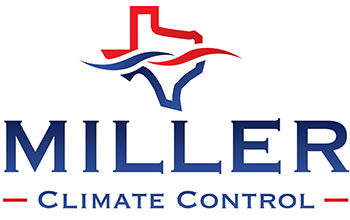
If you’re shopping for an air purifier, you could be realizing that some manufacturers are making lots of claims. And most of those claims could appear too good to be true. So, it’s only natural that you could be wondering are air purifiers a waste of money.
They’re worth it, according to the EPA, since they’re a fantastic approach to enhance your Georgetown residence’s indoor air quality. Modern residences are solidly sealed and thoroughly insulated, which is excellent for energy efficiency, but not so good for indoor air quality.
Since newer residences don’t normally allow in as much fresh air as old residences, pollutants including dust, pet dander and cleaning products can build up in your home. The result? Air that’s dirtier than the outdoors, which is a problem if you are dealing with allergies, asthma or are sensitive to respiratory irritation.
Our indoor air quality professionals at Miller Climate Control LLC can help you cut through the clutter and choose the best home air purifier. Just give us a call at 512-937-2001 and we’ll be happy to assist you. In the meantime, find out more about how air purifiers work, their advantages and our advice to help you find the ideal air purifier.
How Do Air Purifiers Improve Indoor Air Quality?
Most home air purifiers use a fan to collect air. Then, the air is pushed through one or more filters to trap irritants before being sent out again.
These filters may include a charcoal filter, to eliminate odors, and a HEPA, or high efficiency particulate air, filter. A HEPA filter is at least 99.7% effective at filtering microscopic particles as little as .3 microns, like dust, pollen, mold and some bacteria.
An air purifier can be movable and used to treat a single space. Or they can be added to your HVAC system, providing powerful filtration for your total residence.
The EPA says you should be aware that air purifiers can’t remove every contaminant from your residence’s air. But when used in tandem with a better filter for your HVAC system, they can considerably lower the level of indoor air pollution.
4 Benefits of Air Purification
Installing an air purifier in your residence can give a lot of great health advantages. Here are just a few of them.
1. Decreases Allergy and Asthma Triggers
Air purifiers reduce pollutants in your house, such as some of these typical triggers:
- Dust
- Pollen
- Mold
- Volatile organic compounds, like cleaners, air fresheners and personal care products
2. Reduces Other Issues Linked to Poor Indoor Air Quality
Even if you or someone in your household doesn’t experience allergies or asthma, an air purifier can reduce other issues linked to low indoor air quality. These involve:
- Itchy throat, eyes, nose or skin
- Headaches
- Sneezing and coughing
- Fatigue
- Dizziness
- Nausea
It can be hard to determine troubles associated with indoor air quality, since they can be triggered by a lot of other illnesses. However, if you’re observing that you feel better after you leave your residence, your indoor air quality is possibly causing trouble.
3. Removes Odors
Odors that hang around, like cigarette smoke or cooking smells, can be difficult to get rid of. If you having problems with getting rid of strong smells in your home, our professionals recommend getting an air purifier with a charcoal or activated carbon filter.
4. Can Lower Your Probability of Becoming Sick
An air purifier can inactivate some bacteria and viruses under certain airflow conditions, keeping you and your household in better health even more so during winter months. To get complete advantage of this plus, our pros advise a UV air purifier. Disinfecting ultraviolet light provides an additional layer of safeguard against airborne pathogens.
Air Purification Systems to Stay Away From
You’re better off without select air purifiers. Here are a few styles to stay away from when selecting a system for your house:
- Produces ozone. Some air purifiers produce ozone, which can irritate your lungs. The EPA suggests skipping ozone air purifiers.
- Doesn’t use HEPA filters. For the best results, you’ll want a HEPA air purifier. Regarded as the gold standard for clean air, HEPA filters are used in many healthcare settings, such as hospitals.
- Only purifies a single room. We advise using a whole-house air purifier, which filters the air throughout your home. This option works with your heating and cooling system.
When you work with the indoor air quality experts at Miller Climate Control LLC, we make it easy to choose the best air purifier for your house. Give us a call at 512-937-2001 to start breathing cleaner air right away!

